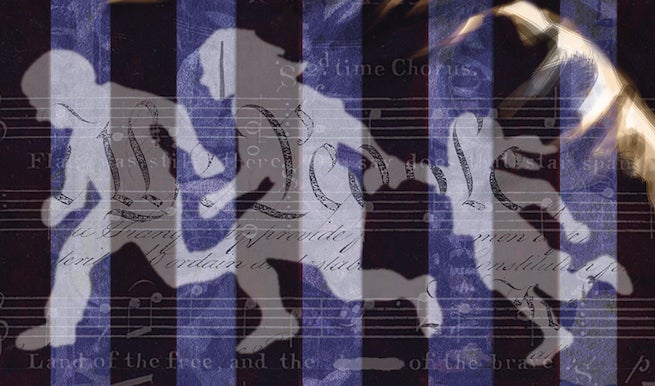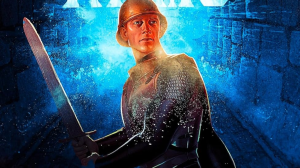Next month, Archaia Entertainment will launch a new series titled Americatown, from screenwriters Larry Cohen and Bradford Winters.
Videos by ComicBook.com
Final orders for issue #1 are due on July 20th. It goes on sale August 12th.
Answering as a unit, Cohen and Winters joined ComicBook.com for a discussion on the project.
This was optioned at one point, and while that never took shape, I have to wonder: was this developed for comics, or for TV? How did the transition work if it was developed for TV?
It was originally developed as a pilot for HBO. Neither willing nor able to let the idea simply die on a shelf after that process went its course, I [Brad] undertook to turn it into a feature film. But it was no small challenge to squeeze a multi-season world of storyline ideas into a two-hour box, and the sense never left me that the only proper platform was an open-ended serialized one.
That’s when Larry came into the picture and groomed the opportunity for a comic. The transition was and is a delightfully smooth one. Given all the adaptations of comics into TV and film these days, we take a certain ironic pleasure in reversing the trend.
Transmetropolitan was, I think, an important touchstone for a lot of people who never read mainstream comics. My brother-in-law loves it, and so does author Greg Palast, who is a fairly casual comics reader. Do you ever look at books like that, or DMZ or Y: The Last Man, and say, “You know what? People are hungry for this in comics?”
That’s exactly where our approach comes from. We want to tell a story that excites a comic audience but also attracts someone new to the medium. DMZ and Y: The Last Man are these wonderfully grounded stories set in a dystopian “what if” that follow characters through an odyssey to find a way better way forward.
Americatown uses that template to answer our own “what if” about the future of America and immigration as we know it. Incidentally, DMZ and Y: The Last Man are the first two comics that I [Larry] brought to the table for reference in the initial transition phase.
How strange is it to go from TV, where you’re expected to appeal to the broadest possible audience, to comics, where thinking about the direct market and what a fairly small number of alpha consumers is going to do is very much part of the equation?
In neither medium do we consider the size or makeup of our audience. The story would be the same whether it’s for television or a comic, and so with the goal: to connect with the viewer or reader in a genuine, relatable and compelling way.
The means to achieve that goal differ greatly between the two media — a vast creative infrastructure at work in television, and a tiny one in comics — but the guiding principles are the same.
You’ve got a lead character who’s a smuggler, which to many fans will bring to mind Star Wars. Do you think that there’s a sense that when the government is broken, your heroes are going to be outlaws?
To be clear, our main character is a husband and a father who comes to Americatown through the enclave’s smuggling ring—the leader of which is part of the larger ensemble of characters
We don’t aim to make that particular kind of commentary on broken government and outlaw heroes, but rather ask the audience a provocative question: What would you do if you were in this position, if supporting your family in urgent circumstances meant breaking the immigration laws of another country where opportunity resides? This isn’t to take sides in the rancorous immigration debate, but to substitute an imaginative family drama for partisan rhetoric.
Why do it as a miniseries instead of, say, running it as a hardcover?
Character and setting are central to this series. Letting the story unfold over eight issues ultimately gives us more time and space to explore our characters as well as the world of Americatown. Coming from television, we were naturally more inclined to approach this as a serialized tale that gains momentum and raises the stakes with each successive issue.
What kind of bigger-picture themes do you hope to explore with this project?
Oh, boy. In no particular order: family, immigration, the American Dream; community, resilience, the American Nightmare; the ever enthralling human spirit.
How self-contained is this? The scope of the world makes it feel like this could easily be a franchise-starter.
There’s an infinitude of stories to tell beyond these first eight issues; and not necessarily just in our inaugural American enclave in the Buenos Aires of this first volume.
Who’s to say there aren’t other Americatowns established or cropping up in other parts of the world at the same time? At one point we jokingly took a cue from CSI for the Americatown franchise idea (Taipei, Mumbai, Sao Paulo, etc,), but noticeably stopped laughing before we started again.









